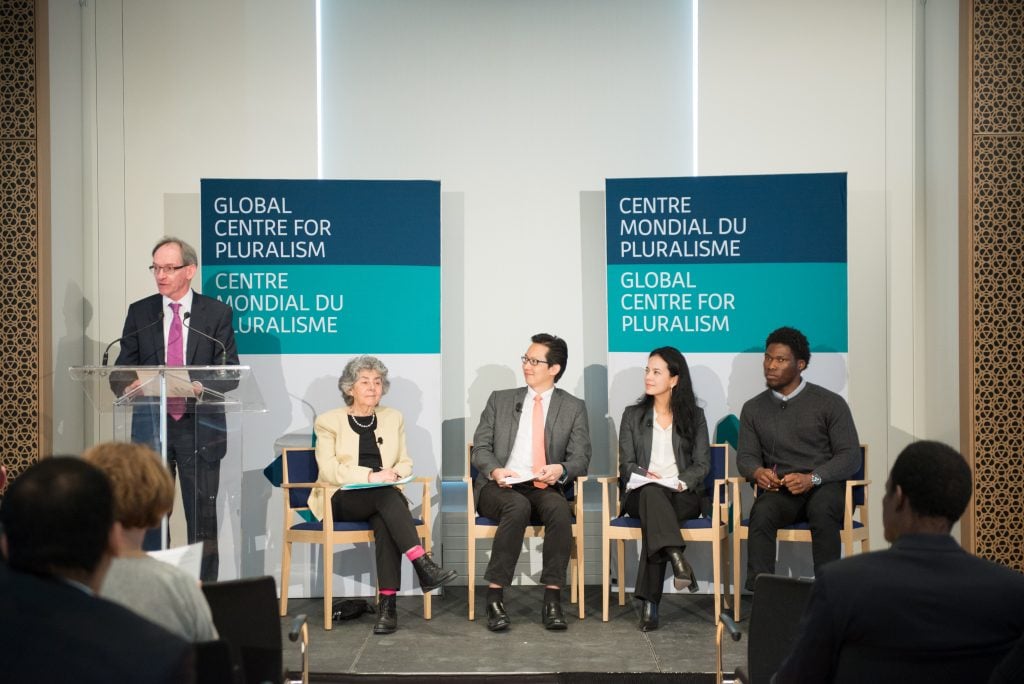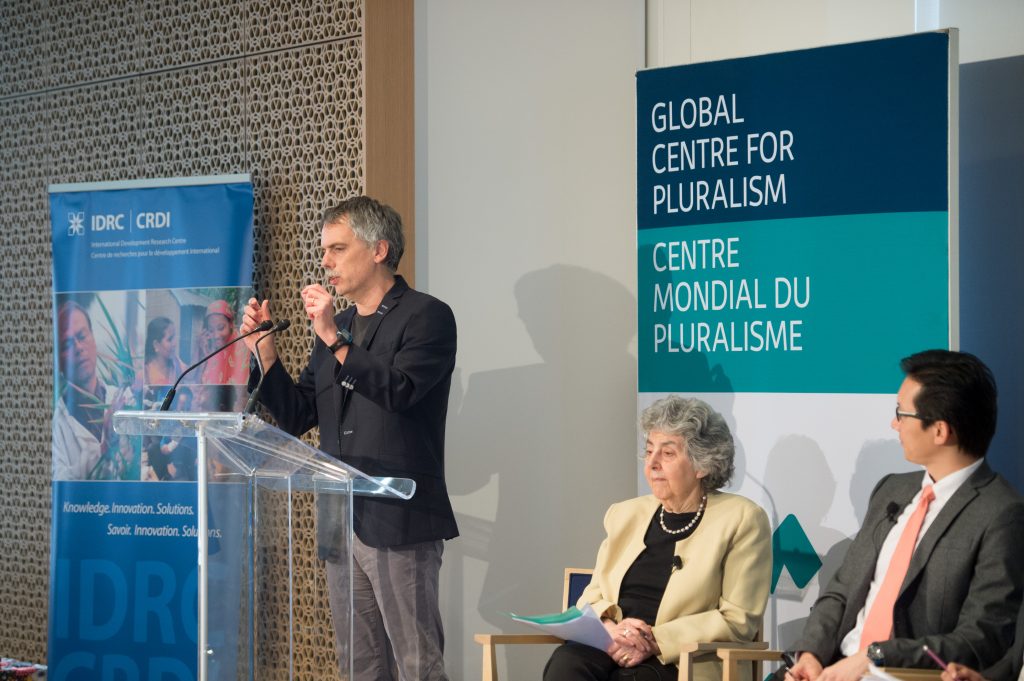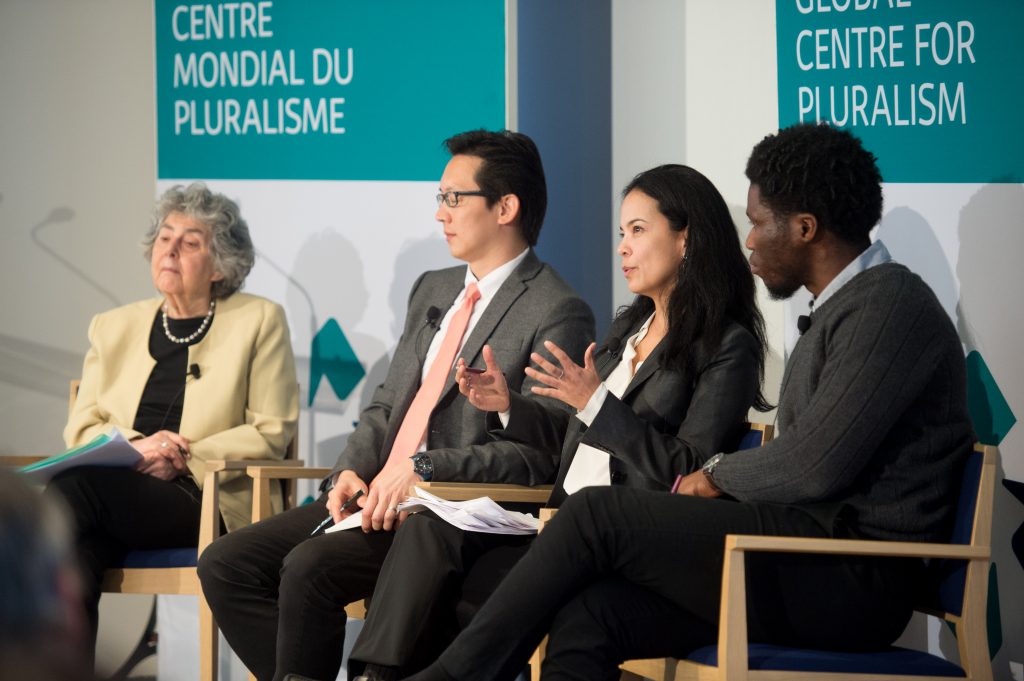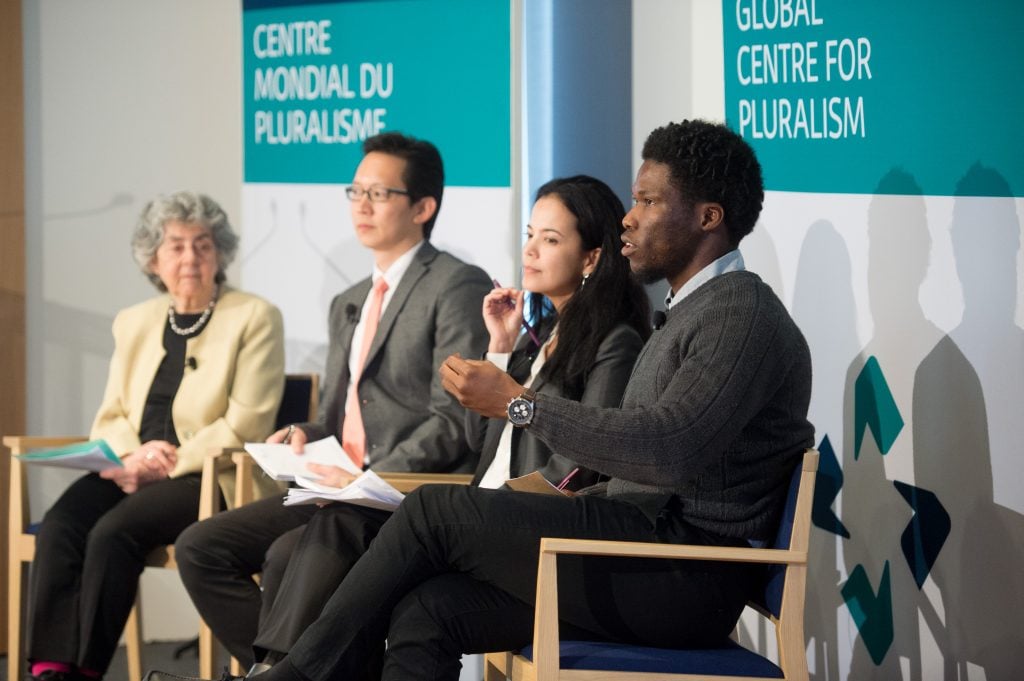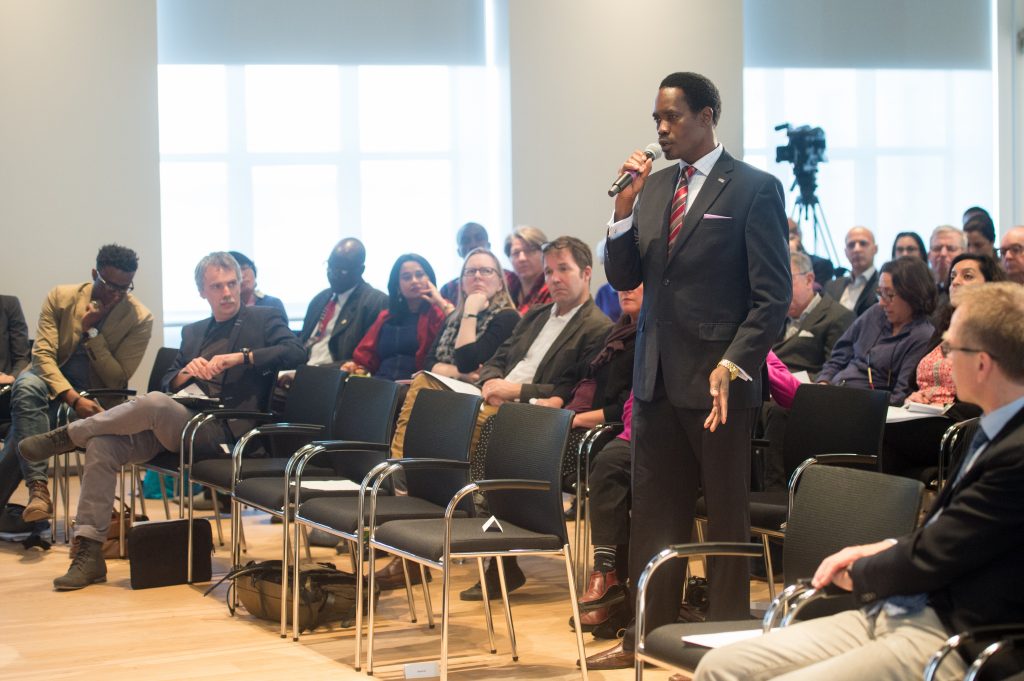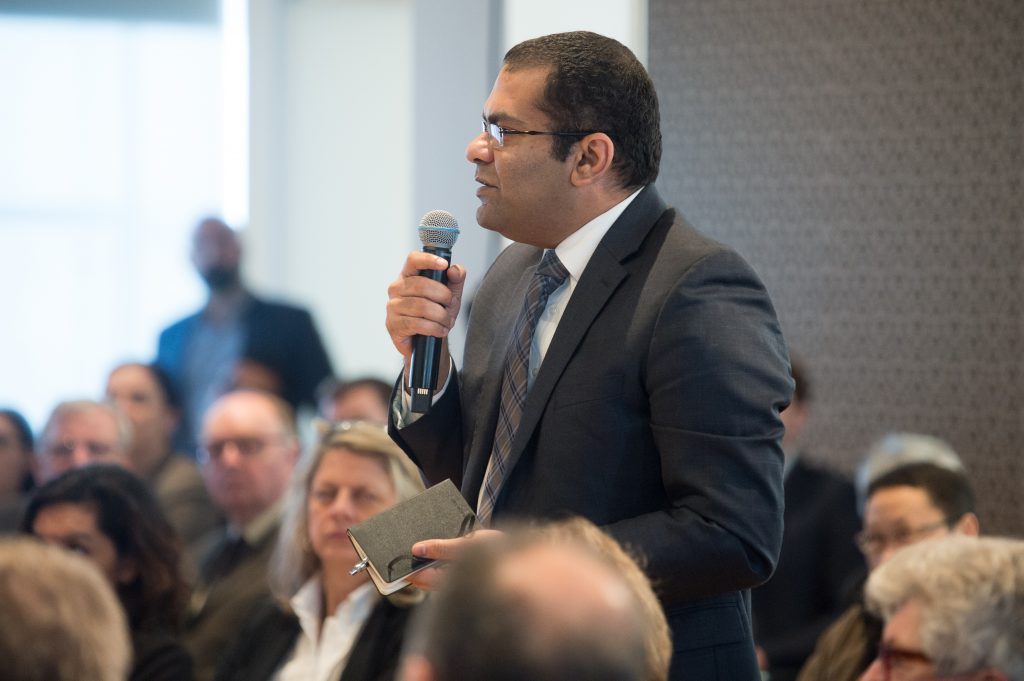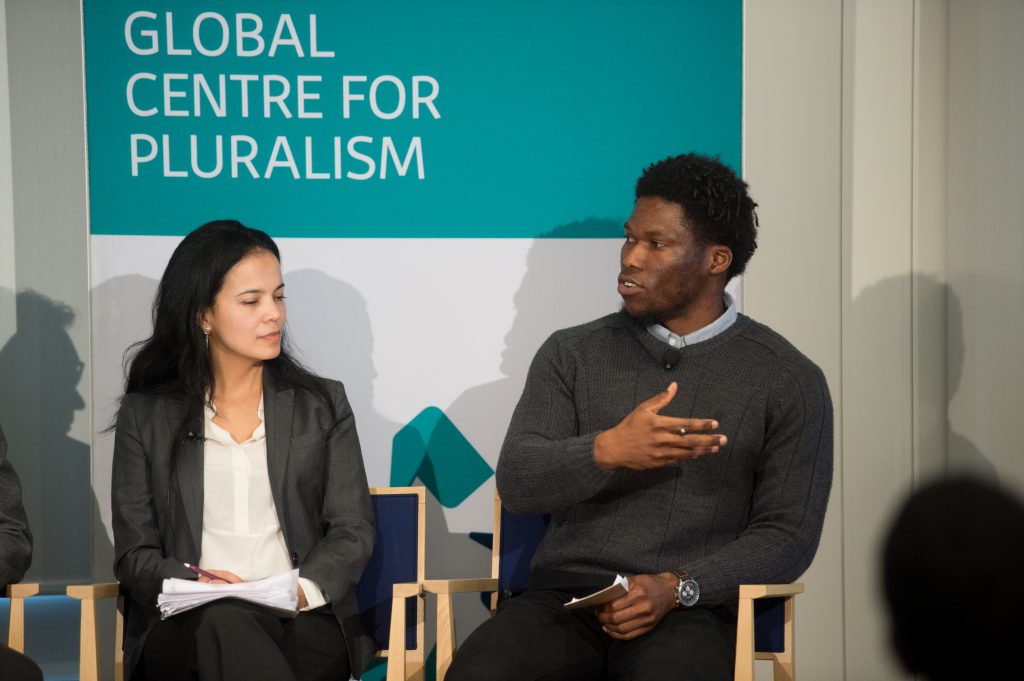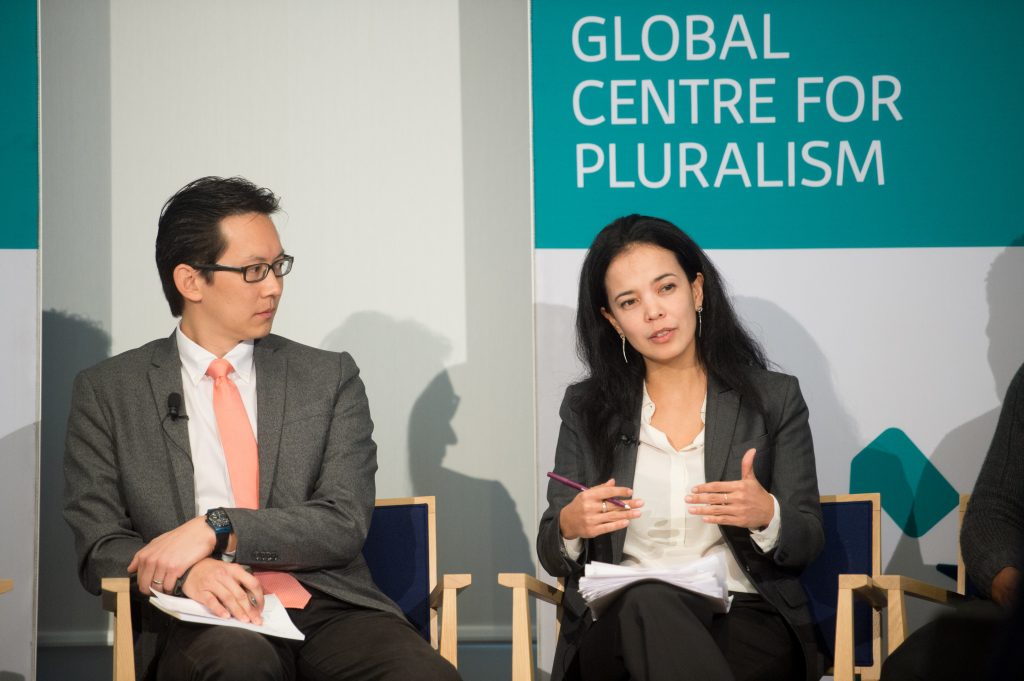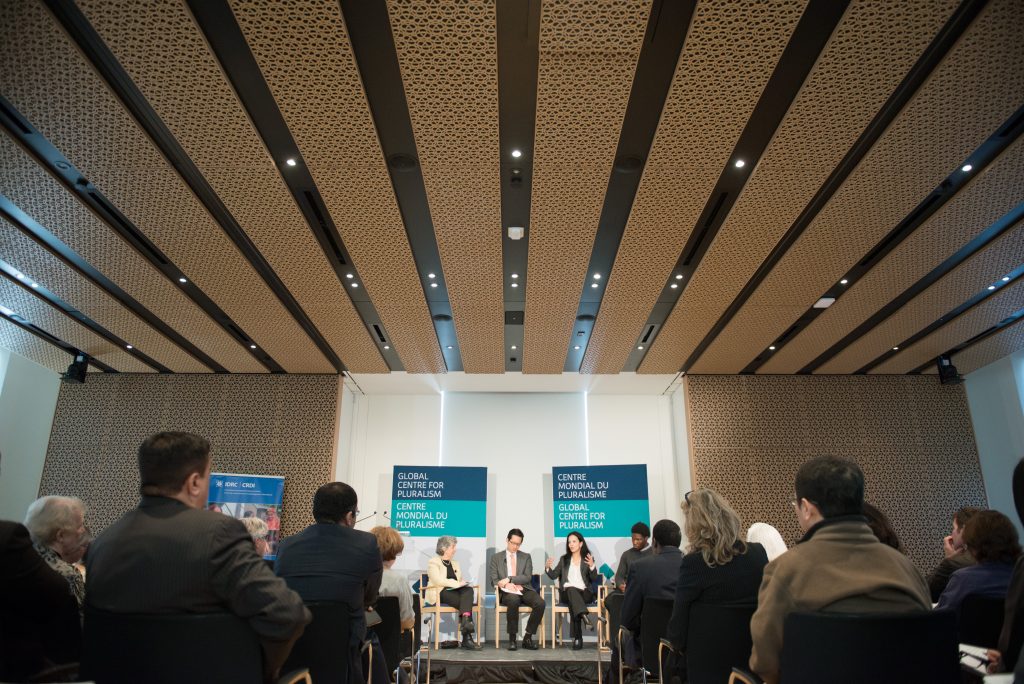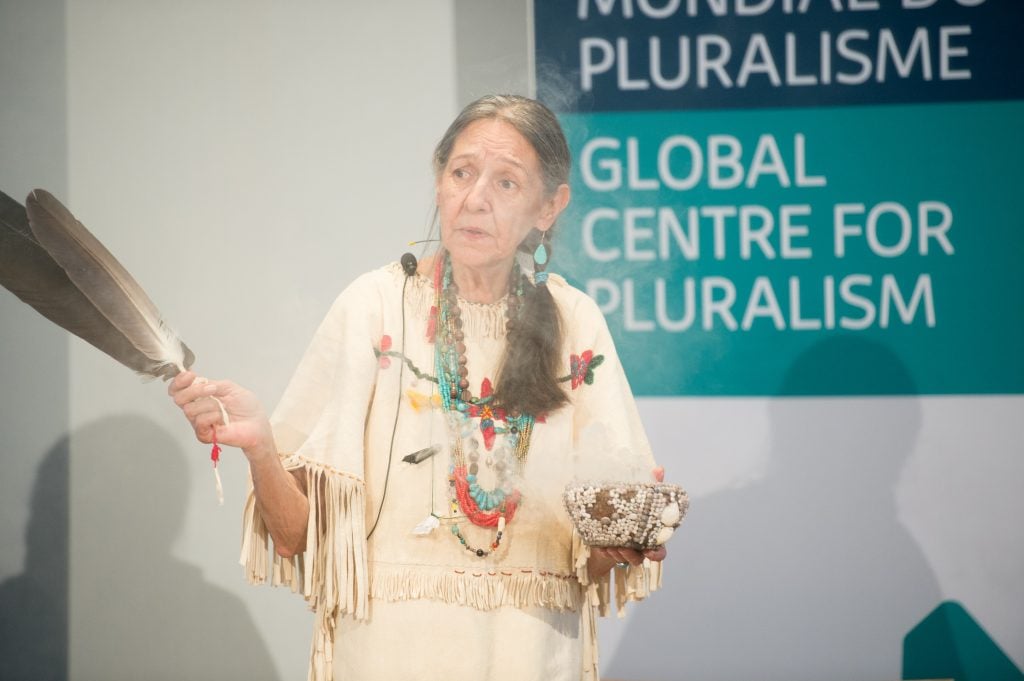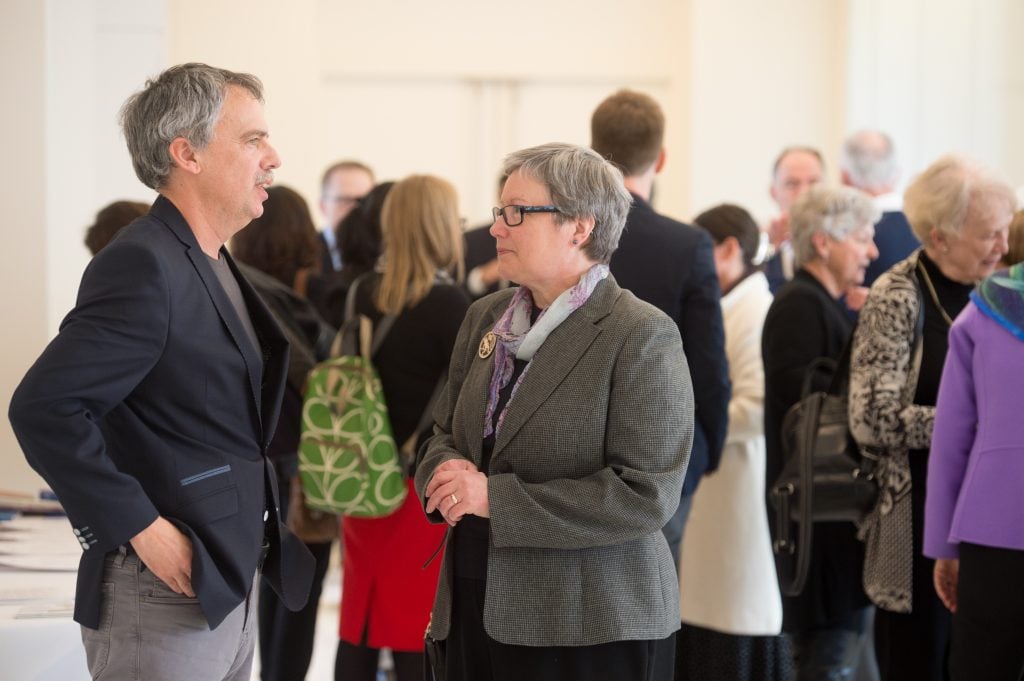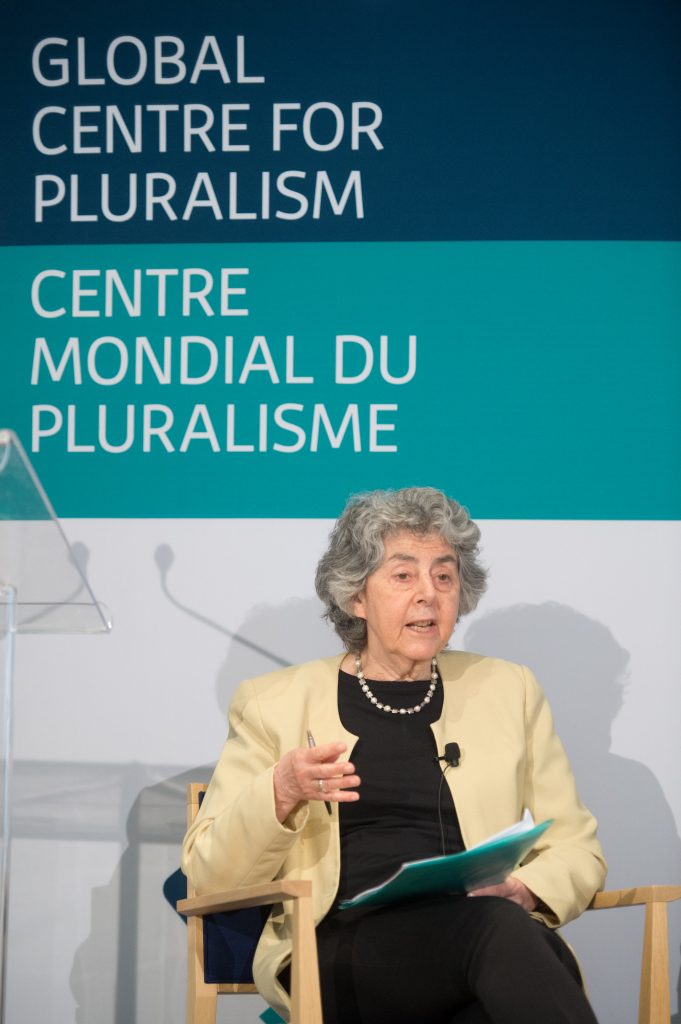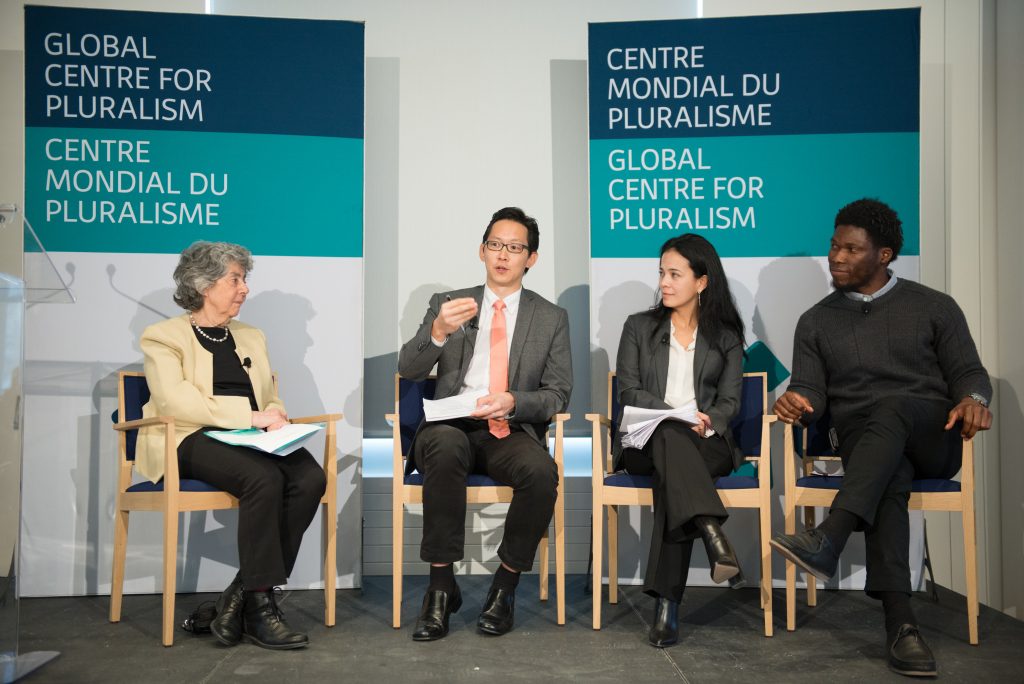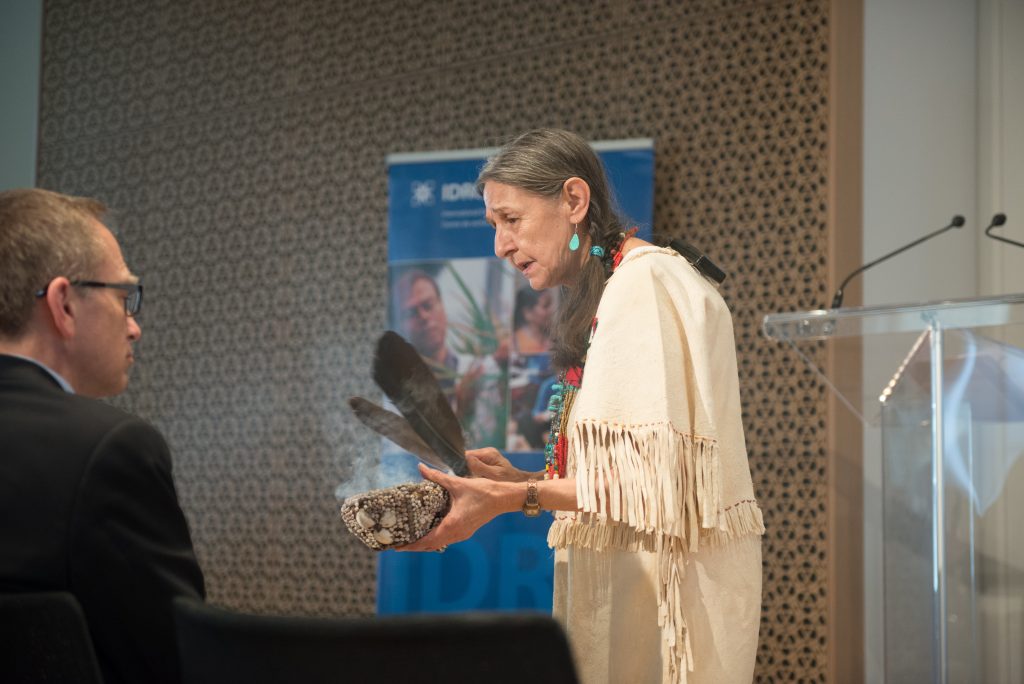Reducing Group Inequalities: Pathways to Pluralism in Malaysia, Brazil and Nigeria
On March 30th, the Global Centre for Pluralism launched Accounting for Change in Diverse Societies — a new publication series comprised of country “change cases” and thematic overviews that explores global pathways to pluralism. To mark the occasion, the Centre convened a Pluralism Forum to explore the responses of Malaysia, Brazil and Nigeria to group inequalities.
Inequalities between groups are a fundamental barrier to pluralism in countries around the world. Led by overview author Frances Stewart (University of Oxford), the panel featured three change case authors. Hwok-Aun Lee (Institute for Southeast Asian Studies) reviewed the pros and cons of constitutional guarantees as levers of affirmative action for indigenous majorities. Daniela Ikawa (Columbia University) highlighted the importance of social movements and the recognition of group-based identities as catalysts for redress of systemic racial discrimination. Daniel Agbiboa (University of Pennsylvania) considered how territorially-bounded identities can both enhance and impede pluralism. Commenting at the end, overview author Will Kymlicka (Queen’s University) highlighted the important work of both institutions and public mindsets — hardware and software — in all efforts to foster greater pluralism.
Speakers:
Frances Stewart
University of Oxford
Hwok-Aun Lee
Institute for Southeast Asian Studies
Daniela Ikawa
Columbia University
Daniel Agbiboa
University of Pennsylvania

